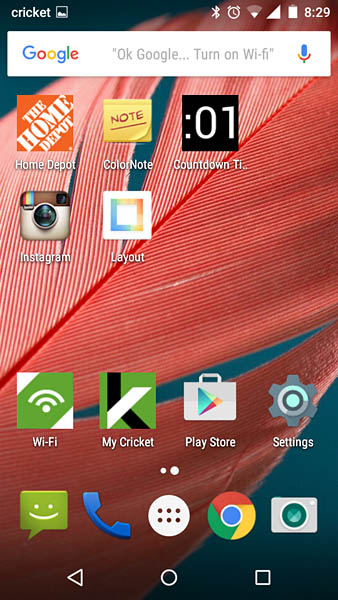Google Now has existed for about 2 years. It advertises itself as an intelligent personal digital assistant. It competes against Apple Siri and Microsoft's Cortana. Google Now has apps for Android and iOS smart phones. It also works on the Google Chrome web browser.
At this point I am not interested in the main advertised functionality, which includes 35+ different specialized "cards" that can remind the user of appointments, flights, sports, weather, news, etc.
I've been using its functionality, without even realizing it, for information gathering. You may have been too. My Android phone comes with a Google search app bar with a little microphone icon and the words "OK Google,..." in the entry bar. This is the Google Voice Search to Google Now, but it is so much more than simply a voice interface to making a Google web search. Because, among other things, in addition to finding web sites about your search query, it first tries to provide you with a direct answer to your query--usually in the form of the introductory paragraph from Wikipedia or other "expert" site. In most cases, if you speak the query to it, it talks back; if you type, it provides text results only.
The verb "to Google" or "Googling" is thus changing meaning from searching for web pages containing information, to simply requesting the information directly. I believe this is not a subtle change.
I use the voice search feature of Google Now constantly for definitions (especially social media slang, medical, and synonyms), translations (Spanish to English), and entertainment trivia (movie cast). I looked at my Google history. I average over 10 different (not same question asked a different way) questions per day. Basically, Google Now answers my impromptu questions--things that come up during the day that I wonder about, but not so much that I'd remember (or care) to research it later. Immediacy.
Of course, we've had access to Google on our desktop for almost 20 years now. But only in the last year or so have we been "wearing" search technology. I mean, we have Google on our phones and we never go anywhere without our phones, do we? In a sense, we, as a species, are enhanced humans with instantaneous access to collective knowledge. How long before we have Google implants?
I wonder if this immediacy (whereby I mean the immediate access to collective knowledge) actually changes the learning mechanism for modern students (whereby I mean everyone). Does it make everyone "smarter"? Are today's school-age youths using the available technology in a different way from their peers in the past? Or is there always a gap in desire or ability between most students and those few who excel at learning?
I'm looking for any evidence of a growing group of self-learners that are setting themselves apart from their peers by using available "learning technologies" (or "knowledge technologies") such as that I see with Google Now. Have you seen any evidence of this? Perhaps such use of the latest "knowledge technologies" will only ever be used by a tiny fraction of students who, in bygone times, spent all their free time reading the big fat unabridged dictionaries and spent hours linking ("see also...") from subject to subject in the encyclopedias in the school library?
What do you think? Are we improving ourselves? Or do we only text and snap narcissistic photos of ourselves to share with strangers? Are we taking full advantage this amazing knowledge technology?


No comments:
Post a Comment
I really want to hear from you! I've changed settings (again) in order to try to make commenting easier without opening it up to spammers. Please note, however, that comments to posts older than 14 days will be moderated. Thank you.